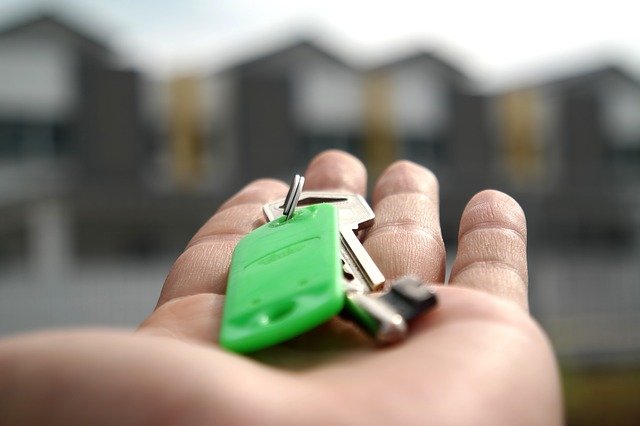Are Fixed-Rate Loans The Solution That Suits You?
Image by mastersenaiper from Pixabay
If you’re in the market for a loan, it’s important to assess the right type of loan for you. The most common are variable and fixed-rate loans, with the latter being commonly thought of as more desirable, such as fixed-rate mortgages.
Fixed-rate loans are an excellent option if you plan on living in your home for more than 5 years. With a fixed-rate loan, you can lock in your interest rate before rates increase.
But what if rates decrease?
A fixed-rate loan is a great option for those who plan to stay in their home for a long period of time or want to be able to predict the cost of their monthly mortgage payments. Here’s what you need to know about fixed-rate loans, and whether they’re a viable solution for your situation.
What are Fixed-Rate Loans?
A fixed-rate loan guarantees your interest rate will not change.
They’re a good option for when you predict mortgage rates might change, such as by tracking them on this page, and you’re able to get a locked-in price before that happens. However, the inverse can also be true – if the market rates fall, you’ll still be paying the same price you locked into.
So the nature of a fixed-rate loan is fairly self-explanatory, but they come with some benefits and drawbacks that you need to consider, which we’ll explore below.
How Much Interest Do You Pay with a Fixed-Rate Loan?
Pros of Fixed-Rate Loans
- Your payments on a fixed-rate loan never changes, which is beneficial for homebuyers who want predictability with their monthly costs. It will also benefit you if your home value increases, or the market rates increase. If you lock in a fixed rate when home values are increasing, you can anticipate a lower mortgage payment in the future.
- You’ll likely save money on interest rates, as interest rates for fixed loans are typically lower than variable rates. As a result, you’ll also save on interest over the course of your loan, which is money you can put towards other financial needs, or even paying off your loan earlier.
- If you have a good credit score, you’ll be able to qualify for a lower fixed rate, which means you’ll have a lower monthly payment. Lenders are more likely to offer favorable terms to people who they are confident will meet the payments on time, so they have fewer qualms about giving you a fairer offer on your loan.
Cons of Fixed-Rate Loans
- Fixed-rate loans can come with higher arrangement fees, because you typically pay mortgage lenders this fee to secure the fixed-rate loan. These fees are for a loan origination fee and the cost of the mortgage insurance premium (MIP).
It’s important to note that the MIP will probably be much cheaper over the course of your loan, so they’re not usually a big hassle.
- Because fixed-rate loans are structured exactly according to contract, anything that falls outside of the contract may have a fee tacked on – including early repayment charges. This means that you might pay a premium to get out early – but you’ll lose out on the lower rates over time.
- Your payments on a fixed-rate loan never changes, which is also a benefit, but also a drawback if interest rates drop for the overall market, and you’re already locked into a fixed rate. Your payments will be based on what you originally locked in, so you won’t get a break from the lower interest rates that are available to you.
What is the ideal situation for taking a fixed-rate loan?
If you want to know if fixed-rate loans are right for you, it’s important to know what the perfect mortgage term for you would be. Mortgage length is the key term that determines the interest rate you’re going to pay, and it’s critical that you find out the length of term that makes sense for your situation.
The ideal mortgage term for you should depend on how much money you need to borrow, the market rate, and the length of time you plan to own the home.
For example, you can often get a lower interest rate for a longer-term than for a shorter term. So if you’re buying a fixer-upper that you plan to flip and sell, a fixed-rate loan may not be a good fit for your situation.
On the other hand, if you’re buying your first property for the long-term, then a long-term fixed rate may be ideal for your situation. When you borrow a huge amount of money and you want to use a large portion of that money to buy a home, a long-term fixed rate will save you money in interest, as you won’t have to pay it off so quickly.
Conclusion
It’s never wise to make a decision based on emotions – it’s smart to do your research, and find out the details that make sense for your specific situation.
When you’re shopping around for a mortgage loan, be sure to ask questions and compare lenders, so that you can find the lender who is going to give you the lowest interest rate and the best details.

